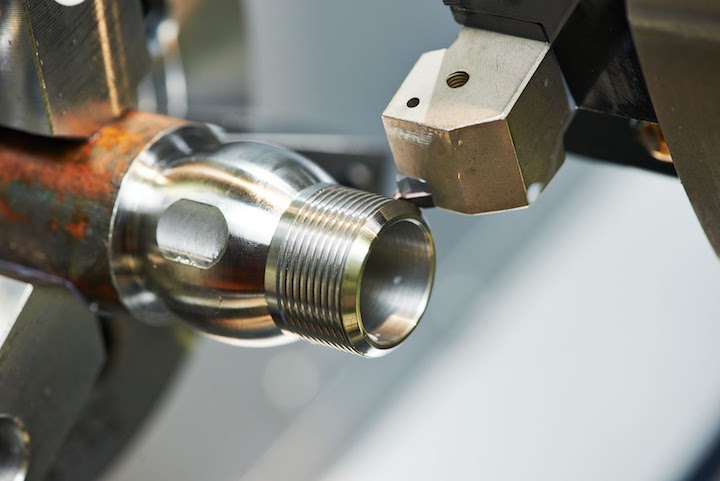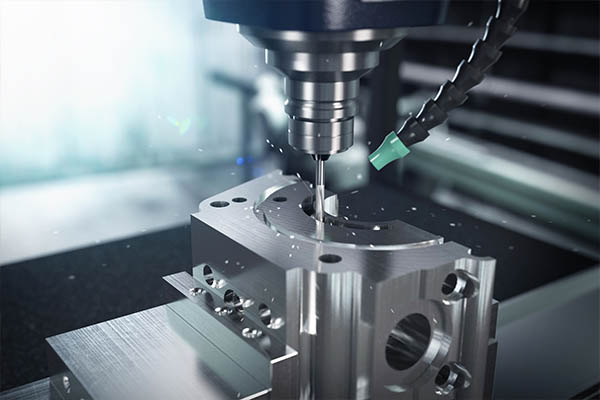CNC Milling Services: The Spine of Modern Precision Manufacturing
CNC Milling Services: The Spine of Modern Precision Manufacturing
Blog Article
CNC machineries, also known as Computer Numerical Control machining, has changed the face of manufacturing, bringing accuracy effectiveness, efficiency, as well as automation to the manufacturing process. CNC machining makes use computer-controlled machinery to form, cut and create intricate parts and parts made of substances like metal and plastic, wood as well as composites. By automating many of the procedures that used to require humans to perform, CNC machining has significantly enhanced the speed and accuracy of manufacturing, making it indispensable in industries like automotive, aerospace as well as medical, electronics, and. Computers' integration with machines has provided many new opportunities in the manufacturing of complex and accurate parts, increasing the quality and scalability of manufacturing.
One of the biggest benefits of CNC Machining is the capacity to create complex and intricate parts that are extremely precise. Unlike manual machining, where precision is mostly dependent upon the skills of the operator CNC machines execute programmed instructions precisely. The digital directions, which are typically created through CAD (Computer-Aided Design) software, let makers to design and manufacture parts with precision as small as couple of microns. This level of precision is vital in sectors such as medical device or aerospace manufacturing, in which even one tiny deviation could compromise the efficiency or safety of a product. When using CNC machined parts, producers can be sure that their product is in compliance with the exact specifications, thus reducing the possibility of a defect and the necessity of costly overhauls.
Efficiency is another significant benefit that comes with CNC cutting. Once the design has been programed in the machine it can run automatically and perform multiple tasks without constant input from a human. This means faster manufacturing times as well as greater certainty in the high quality of the products produced. Additionally, CNC machines can operate at a constant rate, which means that producers can make parts round all hours of the day, thus improving overall production. As opposed to traditional methods of machining, which require skilled machinists to manually control the machinery, CNC machining offers a substantial reduction in the cost of labor and the risk of errors made by human beings, making it a viable option for large-scale production.
CNC machining's versatility is another factor that has made it an integral part of manufacturing today. This technology is compatible in conjunction with an array of substances, ranging from metals such a titanium or stainless steel through to lighter plastics and wood. The CNC machining technology is suitable to make parts suitable for various industries, for example aerospace, automotive electronic, medical and consumer goods. Furthermore, CNC machines can perform multiple operations which include cutting, milling drilling, engraving, and even 3D contouring, all within a single setup. The multi-functionality of CNC machines eliminates the need to have multiple machines as well as part transfer, further enhancing productivity. Whether manufacturing a prototype or assembling large quantities of products, CNC machining offers the ability to accommodate a variety of needs in production. To generate added information please watch great post to read
One of the challenges associated with CNC manufacturing is the cost for initial setup. The cost of investing in CNC machines and the software required to operate the machine can be costly particularly for small-sized businesses. But the benefits over time of CNC cutting-edge technology, like lower cost of labor, improved production efficiency and better production quality often outweigh any initial cost. Furthermore, many businesses provide CNC machining services to businesses that do lack the funds to purchase their own machinery, allowing small-scale manufacturers to benefit from the technological advancements without the expense of upfront. As the demand for CNC processing continues to rise, the cost of machinery and software is expected to reduce, making it affordable to all kinds of businesses.
Another obstacle in CNC machine machining is the programing and setting of CNC machines. Although CNC machines remove a lot of the manual labor involved in the manufacturing process, they still require skilled technicians who can create and enter the appropriate programs. These technicians must have expertise in CAD/CAM (Computer-Aided Design/Computer-Aided Manufacturing) software and understand the specific machining requirements of each project. Programming errors can result in defective components, wasted materials, and machine downtime. Also, the initial setting up of the CNC machine may take time, particularly with complex projects that require several tools or processes. But once the machine has been properly installed and programed, it can produce parts in a remarkably fast time and precision making it less likely to make failures in subsequent runs.